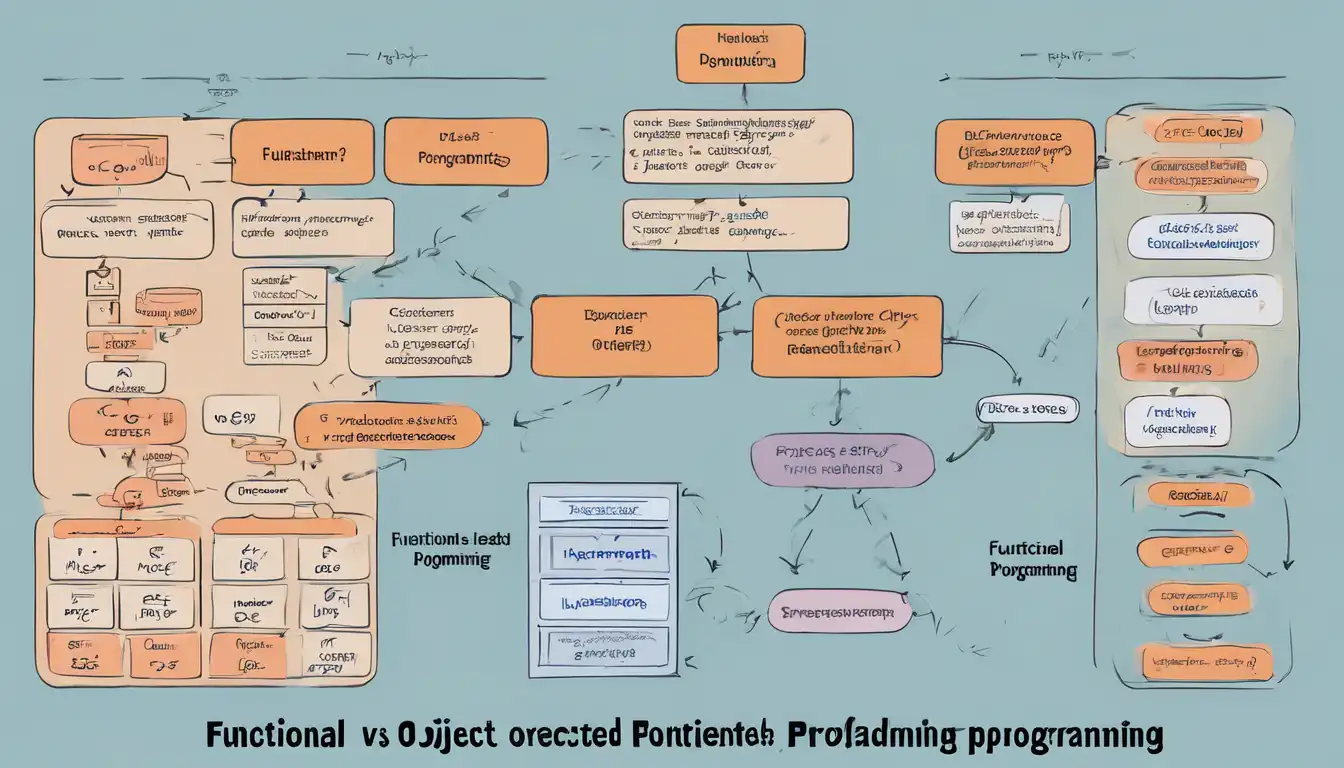Introduction to Programming Paradigms
In the world of software development, understanding the differences between functional programming (FP) and object-oriented programming (OOP) is crucial for choosing the right approach for your project. Both paradigms offer unique advantages and challenges, making them suitable for different types of applications.
What is Functional Programming?
Functional programming is a paradigm that treats computation as the evaluation of mathematical functions and avoids changing-state and mutable data. It emphasizes the application of functions, in contrast to the imperative programming style, which emphasizes changes in state.
- Immutable Data: In FP, data is immutable, meaning it cannot be changed after it's created.
- First-Class Functions: Functions are treated as first-class citizens, allowing them to be passed as arguments to other functions.
- Pure Functions: Functions always produce the same output for the same input and have no side effects.
What is Object-Oriented Programming?
Object-oriented programming is a paradigm based on the concept of "objects", which can contain data and code: data in the form of fields, and code, in the form of procedures. OOP focuses on the objects that developers want to manipulate rather than the logic required to manipulate them.
- Encapsulation: OOP bundles the data and the methods that operate on the data into a single unit.
- Inheritance: This allows a class to inherit properties and methods from another class.
- Polymorphism: It enables one interface to be used for a general class of actions.
Comparing Functional and Object-Oriented Programming
When deciding between FP and OOP, consider the nature of your project. FP is often better suited for applications where the flow of data is more important than the objects themselves, such as in data processing or concurrent applications. OOP, on the other hand, shines in scenarios where modeling real-world entities and their relationships is key, such as in GUI applications or simulations.
Performance Considerations
Performance can vary significantly between FP and OOP. FP's immutable data structures can lead to increased memory usage, while OOP's objects can sometimes introduce overhead due to their dynamic nature.
Scalability and Maintenance
FP's emphasis on pure functions and immutable data can make code easier to test and debug, leading to more maintainable and scalable applications. OOP's encapsulation and inheritance can also aid in creating modular and reusable code, but improper use can lead to tightly coupled systems.
Conclusion
Both functional and object-oriented programming have their place in software development. The choice between them should be based on the specific needs of your project, your team's expertise, and the problem you're trying to solve. By understanding the strengths and weaknesses of each paradigm, you can make an informed decision that leads to more efficient and effective software solutions.
For more insights into programming paradigms, check out our articles on procedural programming and declarative programming.
